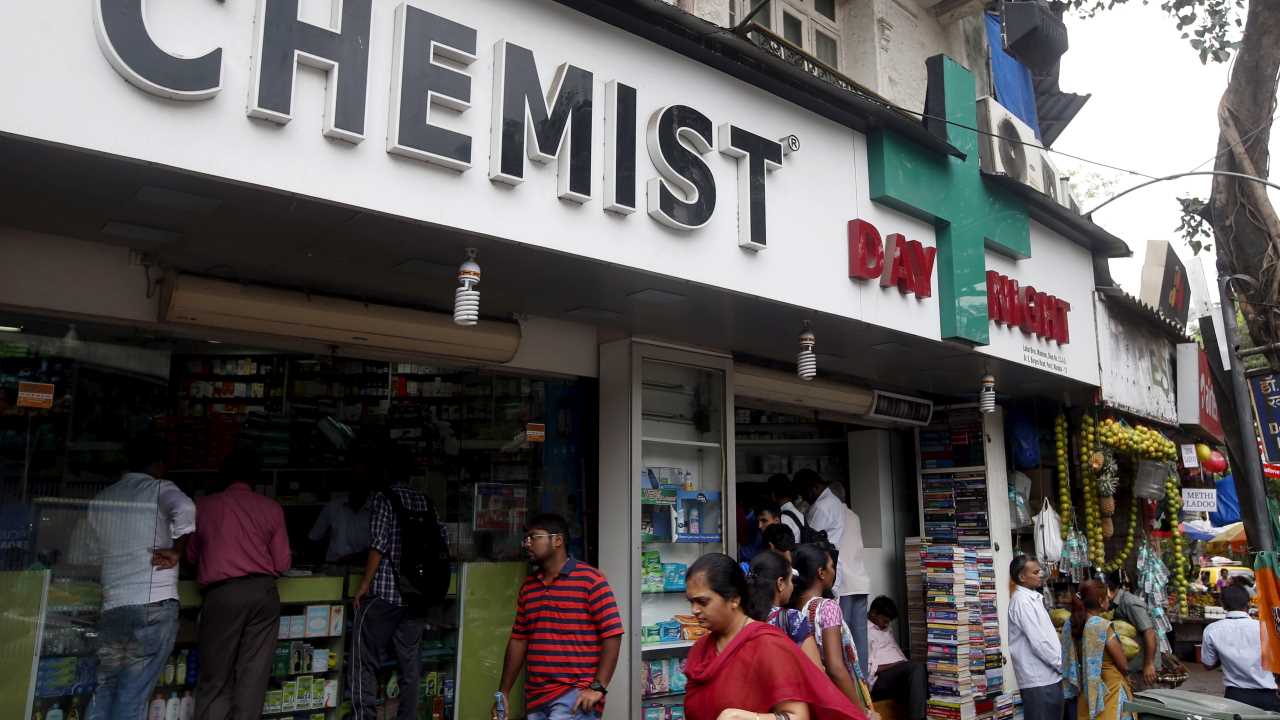Advertisement|Remove ads.
Industry body seeks urgent relief for small chemists amid GST 2.0 transition
AIOCD warned that the absence of timely support could force many small chemists to shut shop, particularly in rural and semi-urban areas, affecting last-mile access to essential medicines.

The All India Organisation of Chemists & Druggists (AIOCD), representing over 12.5 lakh chemists and distributors across the country, has urged the government to announce urgent relief measures for small retailers impacted by the ongoing transition to GST 2.0.
In a communication submitted to Finance Minister Nirmala Sitharaman, AIOCD President J S Shinde and General Secretary Rajiv Singhal highlighted the mounting pressure on small traders following the recent reduction in GST rates on medicines — from 18% to 5%, 12% to 0%, and 12% to 5%. While the tax rationalisation benefits consumers, the association said it has left small chemists bearing heavy losses on existing stock purchased at higher tax rates.
According to AIOCD, most small traders in the pharmaceutical retail network are either unregistered under GST or function as composite dealers, making them ineligible for Input Tax Credit (ITC). With margins on drugs strictly regulated by the National Pharmaceutical Pricing Authority (NPPA), traders are unable to offset the losses arising from the revised tax slabs.
The association has asked the government to:
AIOCD warned that the absence of timely support could force many small chemists to shut shop, particularly in rural and semi-urban areas, affecting last-mile access to essential medicines.
“This is a historic tax reform, but it must not come at the cost of small retailers who form the backbone of India’s drug distribution system,” the memorandum said.
The government has been pushing GST 2.0 as a major step towards simplification and rate rationalisation. However, industry bodies like AIOCD argue that without adequate transitional safeguards, the reform could disrupt supply chains and undermine the accessibility of medicines in underserved regions.
In a communication submitted to Finance Minister Nirmala Sitharaman, AIOCD President J S Shinde and General Secretary Rajiv Singhal highlighted the mounting pressure on small traders following the recent reduction in GST rates on medicines — from 18% to 5%, 12% to 0%, and 12% to 5%. While the tax rationalisation benefits consumers, the association said it has left small chemists bearing heavy losses on existing stock purchased at higher tax rates.
According to AIOCD, most small traders in the pharmaceutical retail network are either unregistered under GST or function as composite dealers, making them ineligible for Input Tax Credit (ITC). With margins on drugs strictly regulated by the National Pharmaceutical Pricing Authority (NPPA), traders are unable to offset the losses arising from the revised tax slabs.
The association has asked the government to:
- Allow small chemists to sell old stock at pre-revision MRPs for three months to avoid distress sales.
- Consider a special relief package for retailers impacted by the transition.
- Ensure that no penal action is taken during this adjustment period.
AIOCD warned that the absence of timely support could force many small chemists to shut shop, particularly in rural and semi-urban areas, affecting last-mile access to essential medicines.
“This is a historic tax reform, but it must not come at the cost of small retailers who form the backbone of India’s drug distribution system,” the memorandum said.
The government has been pushing GST 2.0 as a major step towards simplification and rate rationalisation. However, industry bodies like AIOCD argue that without adequate transitional safeguards, the reform could disrupt supply chains and undermine the accessibility of medicines in underserved regions.
Read about our editorial guidelines and ethics policy

/filters:format(webp)https://news.stocktwits-cdn.com/large_Astra_Zeneca_jpg_a49cc22562.webp)
/filters:format(webp)https://st-everywhere-cms-prod.s3.us-east-1.amazonaws.com/unnamed_jpg_9dff551b50.webp)
/filters:format(webp)https://news.stocktwits-cdn.com/large_Getty_Images_1324553383_jpg_5c59f6eefd.webp)
/filters:format(webp)https://st-everywhere-cms-prod.s3.us-east-1.amazonaws.com/Prabhjote_DP_67623a9828.jpg)
/filters:format(webp)https://st-everywhere-cms-prod.s3.us-east-1.amazonaws.com/large_stock_down_resized_901c19c371.jpg)
/filters:format(webp)https://st-everywhere-cms-prod.s3.us-east-1.amazonaws.com/large_stock_rising_resized_f17852d7aa.jpg)
/filters:format(webp)https://news.stocktwits-cdn.com/shivani_photo_jpg_dd6e01afa4.webp)
/filters:format(webp)https://news.stocktwits-cdn.com/large_Getty_Images_2210044418_jpg_f521ddb64f.webp)
/filters:format(webp)https://news.stocktwits-cdn.com/Getty_Images_2229019667_jpg_24c888d76a.webp)